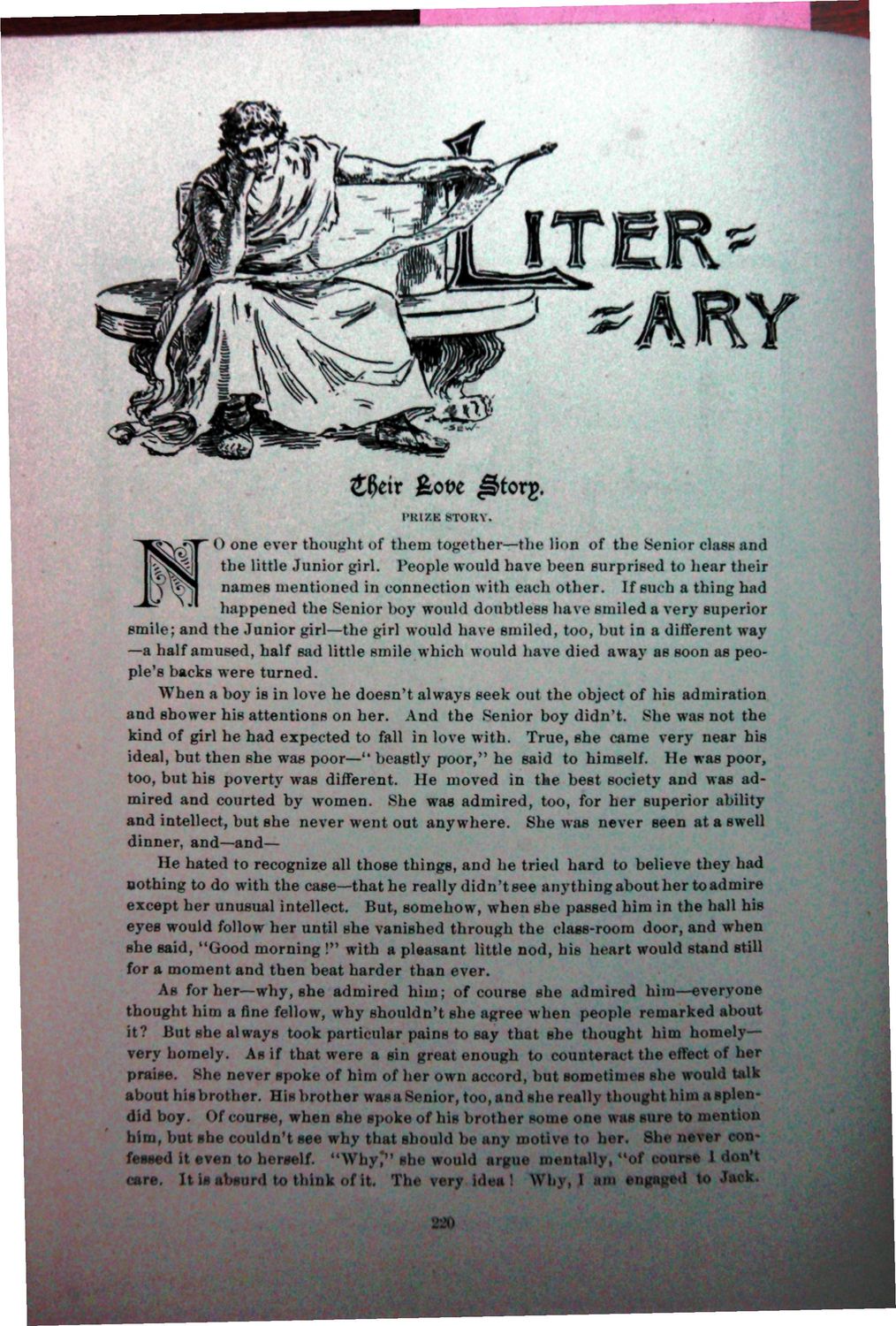| |
| |
Caption: Illio - 1896
This is a reduced-resolution page image for fast online browsing.

EXTRACTED TEXT FROM PAGE:
£0etr £ot>e £&torg. I'KIZK STORY. O one ever thought of them together—the lion of the Senior class and the little Junior girl. People would have been surprised to hear their names mentioned in connection with each other. If such a thing had happened the Senior boy would doubtless have smiled a very superior smile; and the Junior girl—the girl would have smiled, too, but in a different way —a half amused, half sad little smile which would have died away as soon as people's backs were turned. When a boy is in love he doesn't always seek out the object of his admiration and shower his attentions on her. And the Senior boy didn't. She was not the kind of girl he had expected to fall in love with. True, she came very near his u ideal, but then she was poor— beastly poor," he said to himself. He was poor, too, but his poverty was different. He moved in the best society and was admired and courted by women. She was admired, too, for her superior ability and intellect, but she never went oat anywhere. She was never seen at a swell dinner, and—and— He hated to recognize all those things, and he tried hard to believe they had nothing to do with the case—that he really didn't see anything about her to admire except her unusual intellect. But, somehow, when she passed him in the hall his eyes would follow her until she vanished through the class-room door, and when she said, "Good morning !" with a pleasant little nod, his heart would stand still for a moment and then beat harder than ever. As for her—why, she admired him; of course she admired him—everyone thought him a fine fellow, why shouldn't she agree when people remarked about it? But she always took particular pains to say that she thought him homelyvery homely. As if that were a sin great enough to counteract the effect of her praise. She never spoke of him of her own accord, but sometimes she would talk about his brother. His brother was a Senior, too, and she really thought him a splendid boy. Of course, when she spoke of his brother some one was sure to mention him, but she couldn't see why that should be any motive to her. She never confessed it even to herself. "Why?' she would argue mentally, "of course 1 don't care. It is absurd to think of i t The very idea! Why, I am engage* i to Jack. 2#» M
| |